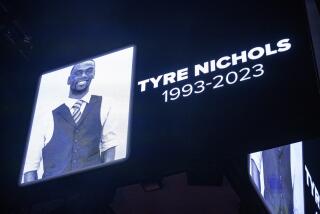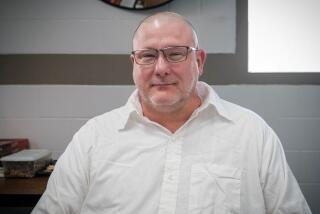Murder trial cost puts the heat on Georgia judge
- Share via
ATLANTA — Angered by the soaring cost of defending Georgia’s most notorious murder suspect, state lawmakers said Thursday they would explore the possibility of impeaching the judge presiding over the case of Brian Nichols, the rape suspect who escaped from a courthouse in 2005 and allegedly killed a judge and three others.
Critics say DeKalb County Senior Judge Hilton Fuller has mismanaged the high-profile death penalty case. They are particularly incensed that he has allowed attorneys hired by the state’s public defender program to rack up more than $1.2 million in pretrial expenses and fees.
The case has come to a halt because of disputes about those payments.
“How many more millions will be spent giving Brian Nichols a defense that no one, including the taxpayers, could afford for themselves?” said Republican House Speaker Glenn Richardson in a statement. “There are serious questions about the poor handling of public funds that need to be addressed. The law provides the House that authority, and we intend to investigate the matter.”
Richardson said he planned to appoint a special committee, headed by attorney and Republican state House Majority Whip Barry A. Fleming, to investigate Fuller’s handling of the trial and whether there was an “abuse of the system.”
It was a rare move for a state legislature, and one that could raise thorny separation-of-powers issues. But Republican state Sen. Preston W. Smith said he feared other death-penalty defendants would take Nichols’ lead and find a way to run up costs, making it difficult -- if not impossible -- for the state to prosecute capital cases.
“I’m concerned that the judge’s behavior is going to lead to the system, as we know it, being dismantled,” he said.
Fuller, a veteran judge known for his attention to detail, could not be reached for comment Thursday. He volunteered to preside over the Nichols trial in neighboring Fulton County because the county’s entire Superior Court bench had recused itself from the case.
Nichols escaped from a deputy at his rape trial in a Fulton County courtroom. He then allegedly fatally shot the judge presiding over a case, a court reporter, a sheriff’s deputy and a U.S. customs agent. Nichols’ alleged crimes, and the manhunt that followed, shocked Atlantans and was covered by international news outlets.
Soon after Nichols’ arrest, the Georgia Public Defender Standards Council assigned a team of salaried defense lawyers to the case, but prosecutors raised issues about the standing of one of the attorneys with the State Bar of Georgia, and moved to disqualify the entire public defender’s program from the case.
The council withdrew the original lawyers, and in an abundance of caution, assembled a new team that included three outside lawyers who billed by the hour. Fuller approved those rates, which are as high as $175 per hour, in July 2005. By last August, according to court documents, they had billed for more than $700,000 in attorneys fees and $200,000 in expert fees.
Two of the defense attorneys contacted by The Times declined to discuss the case. But their colleague, North Carolina-based Henderson Hill, has argued that the prosecutors are to blame for the trial’s high cost.
Fulton County Dist. Atty. Paul Howard’s office has assigned five assistant prosecutors to the Nichols case. They filed a 54-count indictment and submitted the names of 300 potential witnesses. Defense attorneys argue that they need a budget that allows them to mount a sufficiently vigorous defense.
Howard declined to comment for this story. But in court filings, prosecutors argued that the defense was trying to give the impression that the case was “too expensive to try and the State should just take a plea.”
The case is taking a toll on Georgia’s public defender system. The Legislature cut the system’s budget for the public defender’s council about 20% this year. It owes the three outside attorneys more than $160,000, and has declined to pay, despite an order from Fuller.
On Oct. 17, Fuller halted the case after two days of jury selection after the defense attorneys asked that the funding issues be resolved. Fuller ordered the council’s director, Mack Crawford, to a hearing to determine whether he was in contempt of court. The hearing was postponed, and a new date had not yet been set.
--
More to Read
Sign up for Essential California
The most important California stories and recommendations in your inbox every morning.
You may occasionally receive promotional content from the Los Angeles Times.










